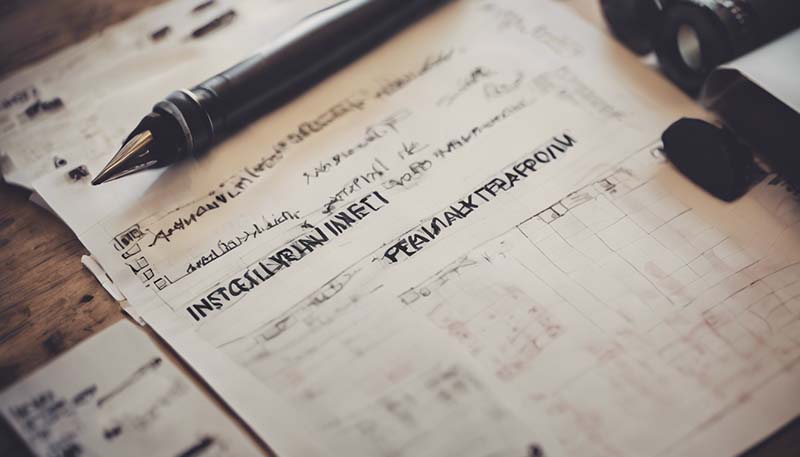Behavioral Interview Preparation: The Essential Checklist
Behavioral interviews are designed to assess a candidate's past experiences and predict their future performance. They are a critical part of the hiring process for many organizations. Preparing for a behavioral interview can be daunting, but with a comprehensive checklist and a thorough understanding of the STAR method (Situation, Task, Action, Result), you can confidently navigate these interviews. This article provides an essential checklist to help you prepare effectively for a behavioral interview.
Understanding Behavioral Interview Questions
Behavioral interview questions are based on the premise that past behavior is the best predictor of future performance. Interviewers use these questions to understand how you have handled situations in the past, which can indicate how you might handle similar situations in the future.
Preparing for the Behavioral Interview
Preparing for a behavioral interview involves several steps, including researching the company, understanding the job requirements, and reflecting on your experiences.
Advertisement
Research the Company
Before the interview, research the company's culture, values, and recent developments. This will help you align your responses with the company's expectations.
Understand the Job Requirements
Familiarize yourself with the job description and requirements. Identify the key skills and experiences that the role demands and prepare examples that demonstrate your suitability.
Reflect on Your Experiences
Think about your past experiences, both professional and personal, that showcase your skills and abilities. Use the STAR method to structure your responses:
- Situation: Describe the context or background of the situation.
- Task: Explain the task or challenge you faced.
- Action: Detail the actions you took to address the challenge.
- Result: Share the outcomes of your actions and what you learned from the experience.
The Essential Checklist
Here's a checklist to ensure you're fully prepared for your behavioral interview:
1. Review Common Behavioral Questions
Familiarize yourself with common behavioral interview questions and prepare thoughtful, detailed responses. Some examples include:
- Tell me about a time when you had to deal with a difficult team member.
- Describe a situation where you had to adapt to a significant change.
- How have you handled a situation where you had too many tasks to complete in a short period?
2. Practice the STAR Method
Use the STAR method to structure your answers. Practice telling stories that are concise and relevant to the question asked.
3. Highlight Transferable Skills
Identify skills that are transferable to the new role and provide specific examples of how you've used them in the past.
4. Be Ready to Discuss Leadership
If the position requires leadership, be prepared to discuss your leadership style and experiences with leading teams or projects.
5. Prepare for Questions About Conflict Resolution
Conflict is inevitable in the workplace. Be ready to share how you've resolved conflicts in a professional manner.

6. Showcase Your Problem-Solving Skills
Demonstrate your ability to analyze problems and come up with effective solutions.
7. Prepare for Ethical Dilemmas
Interviewers may ask about how you've handled ethical dilemmas to gauge your judgment and integrity.
8. Reflect on Your Weaknesses
Have a thoughtful response ready for questions about your weaknesses, focusing on how you've worked to improve them.
9. Bring Evidence of Achievements
If possible, bring documentation or examples of your work to support your claims of past achievements.
10. Prepare Questions for the Interviewer
Having questions to ask the interviewer shows your interest in the role and the company. Prepare insightful questions about the company culture, team dynamics, and expectations for the role.
11. Practice, Practice, Practice
Rehearse your answers to potential questions. The more you practice, the more comfortable and confident you'll be in the actual interview.
12. Dress Appropriately
Plan your attire to align with the company culture and the formality of the position. When in doubt, it's better to be slightly overdressed than underdressed.
13. Plan Your Route and Timing
Know the interview location and how to get there. Allow extra time for unexpected delays to ensure you arrive on time.
14. Bring Necessary Documents
Make sure to bring multiple copies of your resume, a list of references, and any other requested documents to the interview.
Staying Calm and Confident During the Interview
Even with thorough preparation, it's natural to feel nervous during an interview. Here are some tips to help you stay calm and confident:
- Breathe: Take a few deep breaths before the interview to help calm your nerves.
- Positive Affirmations: Use positive self-talk to boost your confidence.
- Visualize Success: Imagine yourself successfully answering questions and making a good impression.
- Listen Carefully: Pay close attention to the interviewer's questions and take a moment to collect your thoughts before responding.
- Speak Slowly and Clearly: Talking too fast can make you appear nervous. Speak at a moderate pace and enunciate your words.
After the Interview
What you do after the interview can be as important as the interview itself:
- Send a Thank-You Note: Express your gratitude for the opportunity and reiterate your interest in the position.
- Follow Up: If you haven't heard back within the timeframe provided, it's appropriate to follow up with a polite email or phone call.
- Reflect and Learn: Regardless of the outcome, use the experience to learn and improve your interview skills for the future.
Conclusion
Behavioral interviews are an opportunity to showcase your skills, experiences, and fit for the role. By following this essential checklist and practicing your responses, you can increase your chances of making a strong impression and securing the job. Remember, preparation is key to performing well in a behavioral interview.
Comment